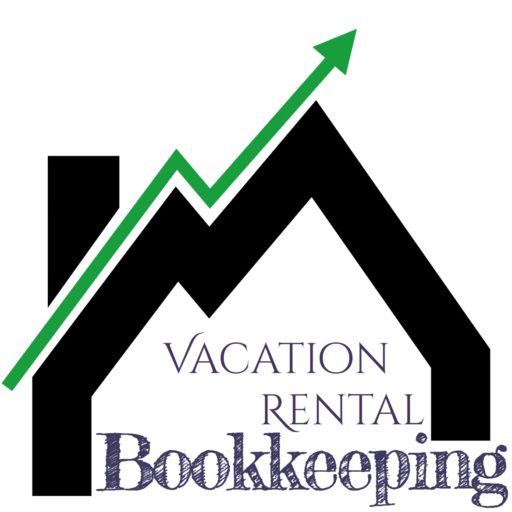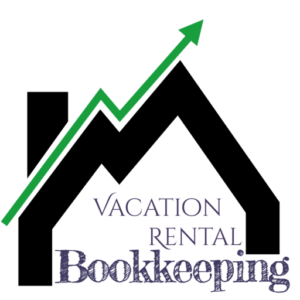When you started out in the vacation rental business, you probably were not expecting to have to weed through technical accounting terms like cash and accrual. Let’s look at the two methods of accounting, see how they relate to short-term rentals, and look at the advantages and disadvantages of each. Remember to always consult your accountant and/or tax preparer before making major financial decisions regarding your business. For some insight on the importance of hiring financial professionals who specialize in the rental industry, please check out “Is Virtual Bookkeeping Right for My Business?” or “If You Think Hiring a Good Bookkeeper is Expensive, Try Hiring a Bad One.”
What is the Cash Method?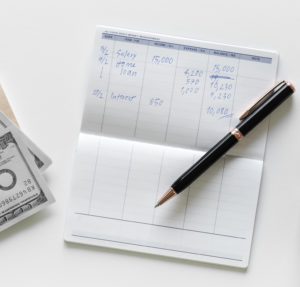
The cash method of accounting records income in your books on the day that you receive the money. For a short-term rental business, money you receive from guests is considered income to you on the day that it deposits to your bank account regardless of when the guest will be staying with you. In the same way, you would record expenses on the day you pay them regardless of when you received the bill or when you benefited from the expense.
Example 1
Todd books your property through HomeAway on March 3. His check-in date is July 12. HomeAway sends you $300 on March 5 and another $300 on June 12. Using the cash method, you record $300 of rent income on March 5 and $300 of rent income on June 12. You do not record anything on July 12.
Example 2
Rebecca books your property through Airbnb on April 20. Her check-in date is May 7. Airbnb send you $500 on May 9. Using the cash method, you record $500 of rent income on May 9. You do not record anything on April 20 or May 7.
Example 3
You receive a $200 electric bill for your rental property that is only used for business on June 25 and pay the bill online on July 3. The bill is for electricity used during the month of June. Using the cash method, you record a $200 business utility expense on July 3. You do not record anything on June 25.
Example 4
You receive an insurance bill for your rental property that is only used for business on December 18. The bill is for $600, is due by January 15, and will provide insurance coverage for your property for the months of January – June. You pay the bill in full on January 12. Using the cash method, you record a business insurance expense of $600 on January 12.
What Is the Accrual Method?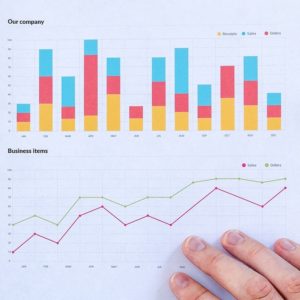
The accrual method of accounting records income on the day the service is performed regardless of when you receive the payment. For a short-term rental business, money would generally be considered income to you on the day the guest checks into your property regardless of when you receive the payment. Expenses are recorded in the time period that you receive the benefit from them regardless of when you paid the bill. Let’s look at the same four examples from above and see how they would be recorded using the accrual method.
Example 1
Todd books your property through HomeAway on March 3. His check-in date is July 12. HomeAway sends you $300 on March 5 and another $300 on June 12. Using the accrual method, you record a $300 liability (money you owe someone else) on March 5 and another $300 liability on June 12. These payments are considered deposits that you are holding, not income. They are considered liabilities because you would be required to refund the money if for some reason you had to cancel the reservation. On July 12, the $600 liability would be removed from your books and $600 of rental income would be recorded because at that point you have provided the service to the guest.
Example 2
Rebecca books your property through Airbnb on April 20. Her check-in date is May 7. Airbnb sends you $500 on May 9. Using the accrual method, you would record $500 of rental income on May 7 even though you do not have the money yet because that is the day you provided the service. The $500 would be recorded as an accounts receivable balance (money owed to you) until the payment is received on May 9.
Example 3
You receive a $200 electric bill for your rental property that is only used for business on June 25 and pay the bill online on July 3. The bill is for electricity used during the month of June. Using the accrual method, you record a business utility expense of $200 on June 25 because you benefited from this expense in the month of June, not July. You would also record an accounts payable (money you owe someone) balance of $200 on June 25. On July 3 you would clear the accounts payable balance when you pay the bill.
Example 4
You receive an insurance bill for your rental property that is only used for business on December 18. The bill is for $600, is due by January 15, and will provide insurance coverage for your property for the months of January – June. You pay the bill in full on January 12. Take a deep breath because this one gets a little tricky. Without going into too much detail on the logistics of the accounting here’s what needs to happen in the accrual method. The $600 paid on January 12 is considered to be an asset called a prepaid expense (you are paying ahead for six months of insurance coverage). Two things can happen now, you can cancel your insurance policy and get money back or use the insurance benefit over the next six months. Let’s say you cancel, and the insurance company sends you $500 back for February-June coverage. You would remove the $600 prepaid expense. $500 would go back to your bank account and you would record a $100 business insurance expense for January. If you take the other option and keep the policy in effect, each month from January to June you would remove $100 from the prepaid expense account and record a $100 business insurance expense. This follows the accrual principle of recording expenses in the time period that you benefit from them. By the end of June, you will have recorded the total $600 expense and there will be nothing left in the prepaid expense account because you can no longer cancel and ask for a refund.
Which Method Should I Choose?
After that last example any sane person would likely be signing up for the cash method, right?
The day-to-day recording of the cash method is obviously much simpler, so why would anyone choose to use the accrual method? Let’s look at the advantages and disadvantages of each method.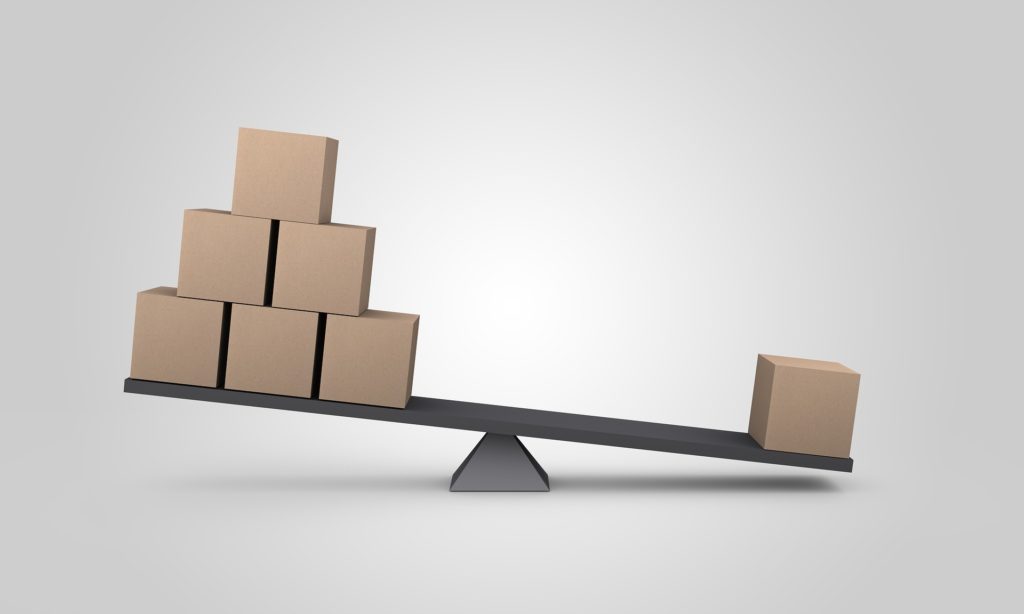
Cash Method – Advantages
- It is easier to learn, understand, and record transactions.
- The income statement (aka profit and loss) shows what cash flowed in and out of your business for the month which is definitely helpful to know.
Cash Method – Disadvantages
- You may be paying taxes for bookings that have not taken place yet. Example: Joe sends you a $700 deposit in December for a booking next May. Under the cash method, you pay income tax on the $700 even though the booking has not occurred yet and could possibly be canceled.
- The revenue on the income statement (P&L) shows deposits that came in during the month not necessarily revenue that corresponds to bookings that took place that month. It may be difficult for you to see how much revenue your property produced from bookings in a given month because revenue is always recorded when it comes in, not when the booking occurs.
- Prepaid expenses can distort the financial reports. If you pay a large insurance bill and a large property tax bill in January, you will likely show a large loss for that month in your financial reports because the whole expense will be applied to January. Your financial statements would be more realistic if these large expenses were spread out over the year since the money you paid does benefit your business throughout the year, not just in January.
Accrual Method – Advantages
- Allows you to pay income taxes on bookings during the year that they occur. Deposits received in December are classified as liabilities and therefore are not counted as income.
- The income statement (P&L) shows how your business performed in a given month, not necessarily how much cash went in and out. Examples: Revenue listed corresponds to bookings that took place that month. Expenses listed only show the portion that applies to that month, no matter when you paid the bill. Each month would show a portion of insurance and property tax expenses even if you didn’t pay them that month. This feature allows you to better evaluate how your business is performing each month.
- You can still see how cash is flowing in and out of your business by using a separate report called the statement of cash flows.
Accrual Method – Disadvantages
- The biggest disadvantage is its complexity as seen in some of the examples above. There is a much bigger learning curve and there is more bookkeeping work to be done.
As with all business decisions, it is important to think this through and make a deliberate choice that you know will be best for your business. Many rental owners use the cash method either because they never chose a method when they started or because it sounds easier. The goal of this article is to give you information that will help you make a proactive decision rather than following a path by default. Your decision will have to be based on your business model. If you never receive deposits ahead of the check-in date, there may be little difference in the two methods so you may then choose the cash method because it is simpler. If the tax and reporting advantages of the accrual method would benefit your business, it may be worth learning this method or hiring someone to help you with it. The key is to make a business decision that is based on your particular needs.
Can I switch methods?
Switching between the cash and accrual method is certainly possible. The logistics of switching are beyond the scope of this article, and it is highly recommended that you involve an accountant in this process to make sure you are doing it correctly. The fees paid to help you do this correctly will be much less than the fees that would be required to fix a situation where the switch was not done correctly. If you have already used one method on your taxes and wish to switch to another method, there are special IRS requirements that must be followed. Please consult with your accountant / tax preparer before making this decision.
Can I use one method for my books and another method for my taxes?
The answer is yes, but this will create extra work for your tax preparer. You need to make sure that your tax preparer is in agreement with this decision and that he or she is willing to make the necessary adjustments in order to change methods for your taxes. You will need to work with your tax preparer before the tax year begins to develop a plan that will make it possible for him or her to make the necessary adjustments. The tax preparer will need to make sure you are recording enough details to make this work. Do not just assume that changing from cash to accrual method on your accounting software reports will be sufficient.
Should I consult my accountant / tax preparer?
This decision is an important one. You need the advice of your tax preparer, and you need to know that he or she supports your decision. This article is intended to help you understand the methods and see some of the advantages of each. Your accountant or tax preparer will be able to advise you based on your business’s unique situation.
About Vacation Rental Bookkeeping
Ryan Gallagher is a virtual bookkeeper who specializes in providing accounting services to short-term and long-term rental owners and managers. He strives to take the burden of bookkeeping off of business owners as well as help them stay on top of their finances, set and meet goals, and make their rentals the best they can be. Contact Ryan directly to see how he can help your business.
www.vacationrentalbookkeeping.com
